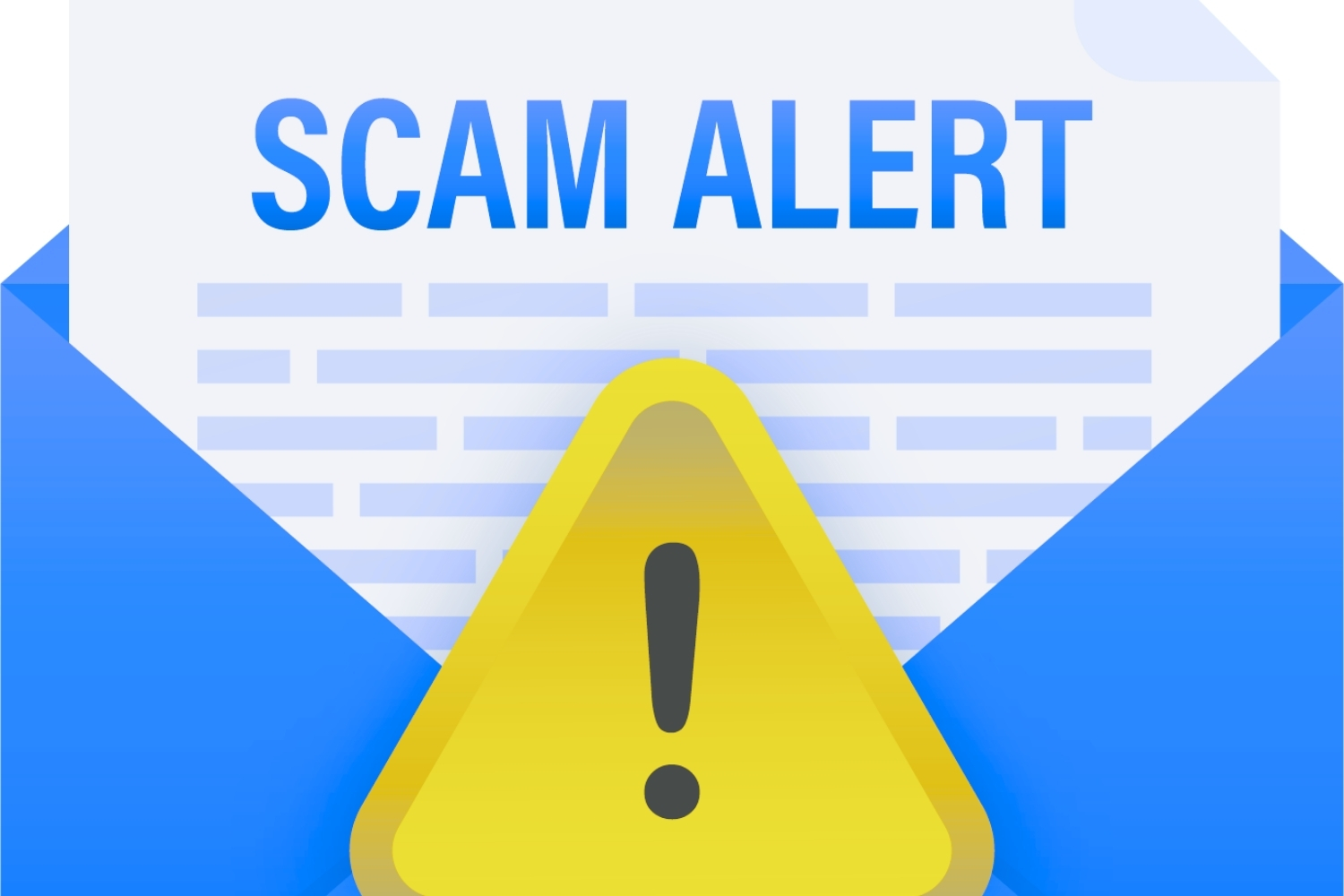
Strange Mailers and False Documents: 6 Scams to Watch Out for After Closing

Closing on a new home is an exciting milestone, but it’s also a time when new homeowners become prime targets for a slew of unsolicited mail, false documents, and scams. The fact that you’ve filed for a mortgage is public record, and businesses can retrieve consumers’ addresses and other personal information. As a result, many legitimate businesses—but also some scammers—may use this as an opportunity to reach out with products and services that seem to be of use. Buyers are usually most vulnerable to these tactics immediately following the purchase of a home, as they are often overwhelmed with paperwork and unfamiliar with the intricacies of homeownership.
Con artists take advantage of this by sending out deceptive mailers that can look legitimate but are designed to trick new homeowners into paying for unnecessary services or, worse, stealing their personal information. Here are five common scams that new homeowners should be aware of after closing on their mortgage:
1. The Mortgage Phishing Scam
Perhaps the most sinister of the scams listed here is a mortgage phishing scam, in which scammers attempt to divert your closing costs and down payment to a fraudulent account. While you might think you would never fall for what seems like a bold-faced con, these schemes have become increasingly sophisticated. It can often appear that the request to change wiring instructions came from your real estate or settlement agent.
To carry out this scam, con artists will target the email accounts of real estate agents, monitoring their correspondence to determine when a client will need to perform large real estate transactions. Then, using the hacked email address, scammers send false emails to these real estate agents’ clients with incorrect instructions for how to wire their closing funds.
What to Do: To avoid becoming a victim of a mortgage phishing scam, always verify wiring instructions in person or by phone using a known, trusted contact. Be skeptical of last-minute changes and avoid clicking on email links or attachments. Double-check all details before transferring funds, and if something seems off, pause the transaction. Report any suspicious activity to your bank and the FBI immediately.
From Mortgages to Home Equity Loans
Our local, award-winning lending team is ready to help you begin today.
2. The Mortgage Protection Insurance Scam
One of the most common scams that new homeowners encounter is the mortgage protection insurance scam. Shortly after closing, you might receive an official-looking letter that appears to come from your mortgage lender or another legitimate institution. This letter will often suggest that you are required to purchase mortgage protection insurance to cover your loan in the event of death, disability, or job loss.
While mortgage protection insurance is a legitimate product, it is never a requirement. Lenders are required to disclose any insurance requirements upfront, and these would typically involve homeowners insurance or private mortgage insurance (PMI) if your down payment is less than 20%. Mortgage protection insurance, however, is optional and should be carefully considered before purchasing. The policies offered by these mailer scams are often overpriced and provide little benefit.
What to Do: If you’re interested in mortgage protection insurance, consult with a trusted insurance advisor or your lender to explore legitimate options. Do not respond to unsolicited offers, especially if they pressure you into making a quick decision.
3. The Property Deed Copy Scam
Another prevalent scam targets new homeowners by offering to provide a certified copy of your property deed for a fee. Shortly after closing, you might receive a letter that looks like it’s from a government agency, warning that you need to obtain an official copy of your deed and offering to do it for you—at a cost, sometimes ranging from $80 to $100.
The reality is that you do not need to pay for this service. After closing, you should receive a copy of the deed from your title company or county recorder’s office. Your lender will keep the original deed on file until your mortgage is paid in full. If you ever need another copy of your deed, you can obtain one from your county recorder’s office for a nominal fee, usually less than $10.
What to Do: Ignore any mortgage mailers offering to provide copies of your property deed. If you need a copy in the future, contact your county recorder’s office directly.
4. The Homestead Exemption Filing Scam
The homestead exemption is a tax break that helps homeowners reduce their property taxes. After closing on a home in Texas, you are eligible to file for this exemption, which provides significant savings on your annual property tax bill, if you own and occupy your home.
Scammers, knowing that this exemption is a hot topic for new homeowners, will send out mailers offering to file your homestead exemption paperwork for a fee. These letters often have official-looking seals and legal language to make them seem legitimate, but they are simply trying to capitalize on your lack of knowledge. Filing for a homestead exemption is typically a straightforward process that you can do yourself, often for free or for a small filing fee. In Travis County, for instance, the form is on the Travis Central Appraisal District’s website and can even be completed online.
What to Do: Do not pay for someone else to file your homestead exemption. Instead, visit your county’s official website to get the correct forms and instructions for filing. If you have any doubts, call your local tax assessor’s office for guidance. Here are the websites for the five counties surrounding Austin:
- Travis County Homestead Exemptions
- Williamson County Homestead Exemptions
- Hays County Homestead Exemption
- Bastrop County Homestead Exemption
- Caldwell County Homestead Exemption
5. The Loan Modification Scam
Loan modification scams are particularly insidious because they prey on homeowners who might be facing financial difficulties. These scams typically involve offers to renegotiate the terms of your mortgage, reduce your interest rate, or lower your monthly payments for a fee.
Scammers often send out mailers that look like they come from your lender, offering these services under the guise of helping you avoid foreclosure. They might ask for an upfront fee, promising that they can get you a better deal on your mortgage. Once you pay, they may disappear with your money or provide a service that does nothing to help your situation.
It’s important to know that legitimate loan modifications are offered directly through your lender or government programs, and they never require upfront fees. In fact, charging upfront fees for loan modification services is illegal in many states.
What to Do: If you need help modifying your loan, contact your lender directly or consult a HUD-approved housing counselor. Do not respond to unsolicited offers, especially those that ask for money upfront.
6. The Service Contract Scam
After closing on a home, you may receive mailers offering service contracts or home warranties that cover the cost of repairs for your home’s appliances and systems. While home warranties can be legitimate, many of the offers that come through the mail are scams designed to get you to sign up for services you don’t need or that offer little coverage.
These scam warranties often come with vague terms, high prices, and hidden fees. They might claim to cover a wide range of items in your home, but when it comes time to file a claim, you find out that the coverage is limited or the company is difficult to contact.
What to Do: Before purchasing any service contract or home warranty, thoroughly research the company offering it. Look for reviews, check with the Better Business Bureau, and read the fine print to understand exactly what is covered. If you’re interested in a home warranty, consider purchasing one from a reputable company recommended by your real estate agent or lender.
Conclusion: Stay Vigilant and Informed
Buying a home is a significant life event, and unfortunately, it can also make you a target for scams. Being aware of the common scams that follow a home purchase can help you protect your finances and personal information.
Always remember to scrutinize any unsolicited mailers or offers you receive after closing. If something seems suspicious, take the time to verify its legitimacy before taking any action. Contact your lender, county office, or a trusted professional to get accurate information. By staying informed and vigilant, you can enjoy your new home without falling victim to these common post-closing scams.
Get a mortgage that works for you!
Our local lenders are here to help, whether it’s about improving your credit or finding the right mortgage for you.


